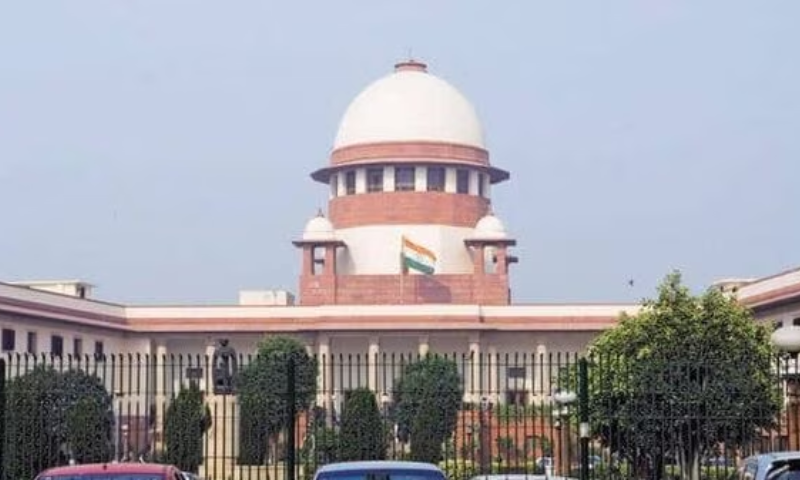NEW DELHI: Indian Supreme Court’s Constitution bench is all set to give its judgment on a series of petitions challenging the abrogation of Article-370 and the division of Jammu and Kashmir into two Union territories today (Monday).
The five-member constitution bench, headed by Chief Justice of India DY Chandrachud and comprising Justices Sanjay Kishan Kaul, BR Gavai, Sanjiv Khanna and Surya Kant, will deliver the verdict today. The top court had reserved its judgment on September 5 after hearing arguments for 16 days.
The central government, represented by Attorney General R Venkataraman and Solicitor General Tushar Mehta, defended the decision to revoke Article 370, telling the court that there was no “constitutional fraud” in repealing the provision that granted special status to Jammu and Kashmir. The government argued that Jammu and Kashmir was not the only state whose accession to India was through instruments of accession, and that many other princely states had also joined India after independence in 1947, with conditionalities.
India’s opposition parties are still pushing for the comeback of Article 370, which granted special status to Jammu and Kashmir. Several petitions had challenged the abrogation of Article 370 and the Jammu and Kashmir Reorganisation Act, 2019 that divided the erstwhile state into two union territories – Jammu and Kashmir, and Ladakh. The case was referred to a Constitution Bench in 2019.
The five-judge bench had on September 5 reserved its verdict in the matter for December 11 (today).
Senior Indian advocate Dushyant Dave, during the ongoing hearing in the Indian Supreme Court of the petitions, said that abrogating Article 370 suffers from “fraud” on the Indian Constitution and was done “completely contrary” to the provisions of the Constitution. The constitutional expert pointed out that the exercise of the power by the President or Parliament has to be done under the Constitution itself and in a constitutional sense. “In my sense, constitutional sense or constitutional provisions prohibited both — the President and Parliament — from touching Article 370(3) in any manner to abrogate it,” he argued.
He argued that Article 370 was abrogated by the ruling party at the Centre to gain political weightage. He contended that there is no power to abrogate Article 370 under Article 370(3). He repeatedly argued that the procedure adhered by the Narendra Modi government to nullify Article 370 amounted to “fraud” and termed the exercise of power by Parliament as “colourable”.
























